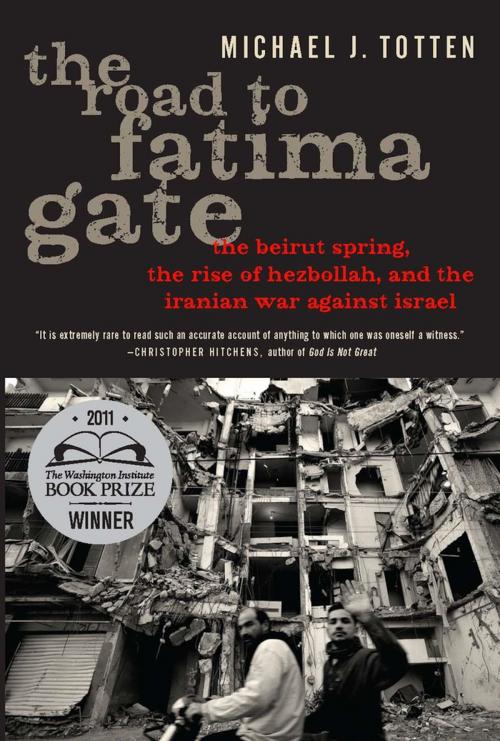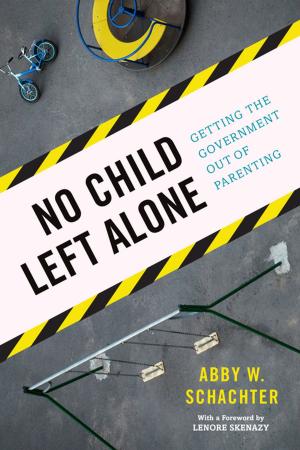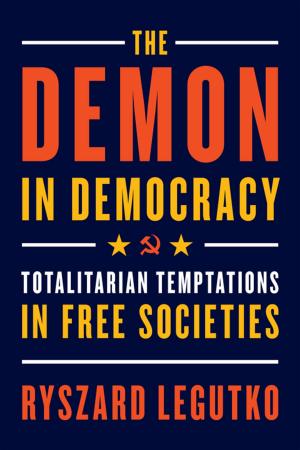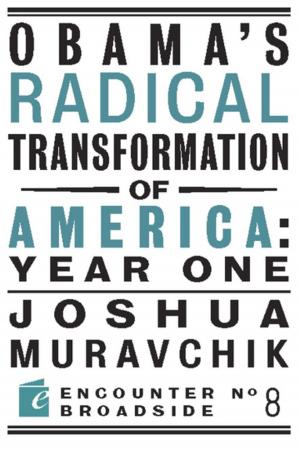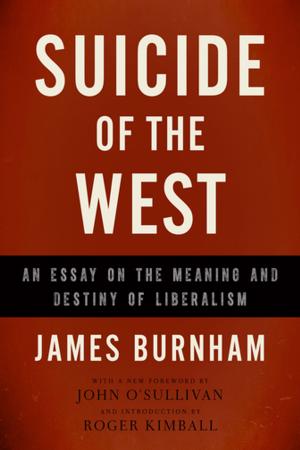The Road to Fatima Gate
The Beirut Spring, the Rise of Hezbollah, and the Iranian War Against Israel
Nonfiction, History, Middle East| Author: | Michael J. Totten | ISBN: | 9781594036552 |
| Publisher: | Encounter Books | Publication: | November 13, 2012 |
| Imprint: | Encounter Books | Language: | English |
| Author: | Michael J. Totten |
| ISBN: | 9781594036552 |
| Publisher: | Encounter Books |
| Publication: | November 13, 2012 |
| Imprint: | Encounter Books |
| Language: | English |
The Road to Fatima Gate is a first-person narrative account of revolution, terrorism, and war during history’s violent return to Lebanon after fifteen years of quiet. Michael J. Totten’s version of events in one of the most volatile countries in the world’s most volatile region is one part war correspondence, one part memoir, and one part road movie.
He sets up camp in a tent city built in downtown Beirut by anti-Syrian dissidents, is bullied and menaced by Hezbollah’s supposedly friendly media relations” department, crouches under fire on the Lebanese-Israeli border during the six-week war in 2006, witnesses an Israeli ground invasion from behind a line of Merkava tanks, sneaks into Hezbollah’s postwar rubblescape without authorization, and is attacked in Beirut by militiamen who enforce obedience to the resistance” at the point of a gun.
From the Cedar Revolution that ousted the occupying Syrian military regime in 2005 to the devastating war between Israel and Hezbollah in 2006 to Hezbollah’s slow-motion but violent assault on Lebanon’s elected government and capital, Totten’s account is both personal and comprehensive. He simplifies the bewildering complexity of the Middle East; gains access to major regional players as well as to the man on the street; and personally witnesses most of the events he describes. The Road to Fatima Gate should be indispensable reading for anyone interested in the Middle East, Iran’s expansionist foreign policy, the Arab-Israeli conflict, asymmetric warfare, and terrorism in the aftermath of September 11.
He sets up camp in a tent city built in downtown Beirut by anti-Syrian dissidents, is bullied and menaced by Hezbollah’s supposedly friendly media relations” department, crouches under fire on the Lebanese-Israeli border during the six-week war in 2006, witnesses an Israeli ground invasion from behind a line of Merkava tanks, sneaks into Hezbollah’s postwar rubblescape without authorization, and is attacked in Beirut by militiamen who enforce obedience to the resistance” at the point of a gun.
From the Cedar Revolution that ousted the occupying Syrian military regime in 2005 to the devastating war between Israel and Hezbollah in 2006 to Hezbollah’s slow-motion but violent assault on Lebanon’s elected government and capital, Totten’s account is both personal and comprehensive. He simplifies the bewildering complexity of the Middle East; gains access to major regional players as well as to the man on the street; and personally witnesses most of the events he describes. The Road to Fatima Gate should be indispensable reading for anyone interested in the Middle East, Iran’s expansionist foreign policy, the Arab-Israeli conflict, asymmetric warfare, and terrorism in the aftermath of September 11.
The Road to Fatima Gate is a first-person narrative account of revolution, terrorism, and war during history’s violent return to Lebanon after fifteen years of quiet. Michael J. Totten’s version of events in one of the most volatile countries in the world’s most volatile region is one part war correspondence, one part memoir, and one part road movie.
He sets up camp in a tent city built in downtown Beirut by anti-Syrian dissidents, is bullied and menaced by Hezbollah’s supposedly friendly media relations” department, crouches under fire on the Lebanese-Israeli border during the six-week war in 2006, witnesses an Israeli ground invasion from behind a line of Merkava tanks, sneaks into Hezbollah’s postwar rubblescape without authorization, and is attacked in Beirut by militiamen who enforce obedience to the resistance” at the point of a gun.
From the Cedar Revolution that ousted the occupying Syrian military regime in 2005 to the devastating war between Israel and Hezbollah in 2006 to Hezbollah’s slow-motion but violent assault on Lebanon’s elected government and capital, Totten’s account is both personal and comprehensive. He simplifies the bewildering complexity of the Middle East; gains access to major regional players as well as to the man on the street; and personally witnesses most of the events he describes. The Road to Fatima Gate should be indispensable reading for anyone interested in the Middle East, Iran’s expansionist foreign policy, the Arab-Israeli conflict, asymmetric warfare, and terrorism in the aftermath of September 11.
He sets up camp in a tent city built in downtown Beirut by anti-Syrian dissidents, is bullied and menaced by Hezbollah’s supposedly friendly media relations” department, crouches under fire on the Lebanese-Israeli border during the six-week war in 2006, witnesses an Israeli ground invasion from behind a line of Merkava tanks, sneaks into Hezbollah’s postwar rubblescape without authorization, and is attacked in Beirut by militiamen who enforce obedience to the resistance” at the point of a gun.
From the Cedar Revolution that ousted the occupying Syrian military regime in 2005 to the devastating war between Israel and Hezbollah in 2006 to Hezbollah’s slow-motion but violent assault on Lebanon’s elected government and capital, Totten’s account is both personal and comprehensive. He simplifies the bewildering complexity of the Middle East; gains access to major regional players as well as to the man on the street; and personally witnesses most of the events he describes. The Road to Fatima Gate should be indispensable reading for anyone interested in the Middle East, Iran’s expansionist foreign policy, the Arab-Israeli conflict, asymmetric warfare, and terrorism in the aftermath of September 11.
